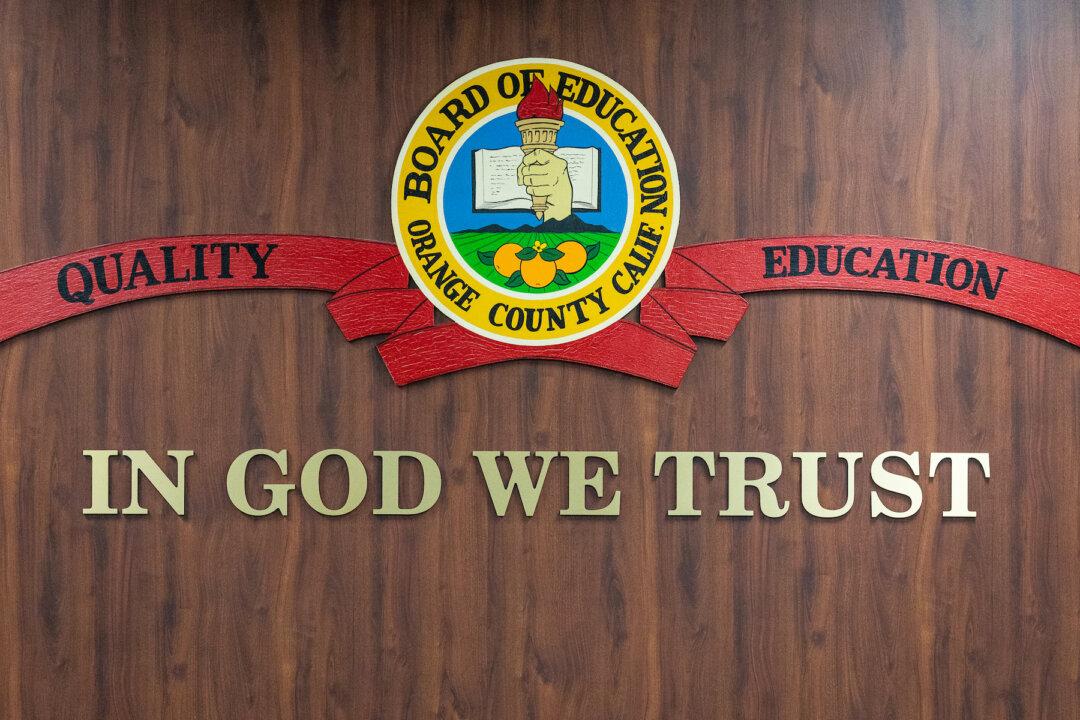Orange County is celebrating the 30-year anniversary of the state’s Charter School Act and continuing its commitment to support school choice as state and federal lawmakers push to put more restrictions on charter schools.
The Orange County Board of Education this week unanimously approved a resolution (pdf) to recognize the state’s 1992 Charter School Act, which gave charter schools the flexibility to set their own curriculum and guidelines while still receiving federal funds.





